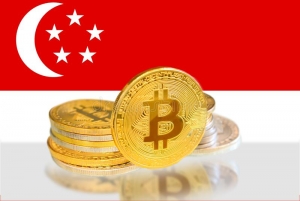When Singapore’s Payment Services Act came into effect in January 2020, there was a lot of excitement about the potential for digital asset firms to be registered and licensed as digital payment token (DPT) service providers. However, the Monetary Authority of Singapore (MAS) has only granted licenses and in-principle approvals to 14 firms (crypto exchanges, stablecoin issuers and traditional financial institutions) thus far, though it has received 196 applications. 108 applications are pending; 74 have been withdrawn and 3 have been rejected.
At the same time, cryptocurrencies are not yet legal tender in Singapore. Rather, they are labeled as goods that can be used for exchange, while the actual crypto trading market in the city-state is small. For instance, as of August 2021, crypto made up less than 0.01% of the assets in funds managed by MAS-regulated fund managers while the combined peak daily trading volumes for Singapore's top three cryptocurrencies was only 2% of what it trades in securities every day, according to the Blockchain Association of Singapore.
Crypto trading in Singapore did pick up later in 2021, as evidenced by increased trading volume on the DBS Digital Exchange (DDEx). In the fourth quarter of 2021, DDex's trading volume was about S$800 million ($595.5 million) more than double the preceding three quarters, according to CoinDesk. As of February, DDEx offered exchange services between four fiat currencies (Singapore dollars, U.S. dollars, Hong Kong dollars and Japanese yen) and four cryptocurrencies (BTC, ETH, BCH and XRP).
While Singapore will likely remain committed to an incremental integration of digital assets into its financial markets, it will remain cautious about the involvement of retail investors in the crypto space, especially as various players in the decentralized virtual currencies ecosystem continue to implode, and the prices of major cryptocurrencies continue to plunge. According to parliamentary records published July 4, Singapore senior minister and MAS chair Tharman Shanmugaratnam said the financial watchdog may consider “placing limits on retail participation” for crypto investors as well as introducing rules on the use of leverage for crypto transactions.
Earlier this year, the MAS restricted the marketing and advertising of cryptocurrency services in public places. Since then, crypto providers have removed cryptocurrency ATMs and advertisements from public areas and public transport venues.
Further, on June 30, the MAS reprimanded Singapore-based Three Arrows Capital for allegedly “providing false information and exceeding assets under management threshold.” Regulations forbid 3AC to have more than 30 qualified investors and manage assets of more than S$250 million, yet 3AC exceeded this threshold from July-September 2020, and November 2020-August 2021, said MAS. Three Arrows Capital may be facing liquidation amid reports it failed to meet margin calls from its lenders.

